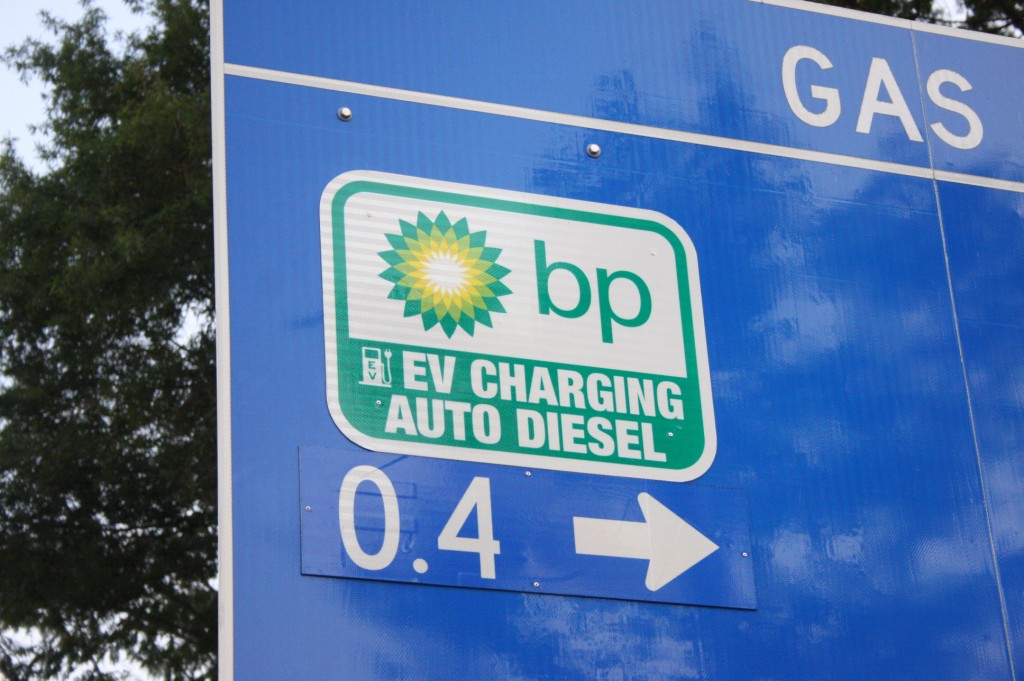Germany will require all gas stations to offer electric car charging as part of a 130 billion euro ($146 billion) economic recovery plan, reports Reuters. While some gas-station chains have begun to add electric-car charging, Germany is likely the first country to mandate it nationwide.
The requirement is part of a sweeping recovery plan announced Thursday, with provisions to incentivize electric cars.
The plan calls for taxes to penalize ownership of low-efficiency internal-combustion SUVs, and a 6,000 euro ($6,800) subsidy for the purchase of electric vehicles, according to Reuters. Germany already increased its EV subsidies for 2020, to a maximum 5,000 euros ($5,700).
The German government will also spend 2.5 billion euros ($2.8 billion) on battery-cell production and charging infrastructure, Reuters reported. The plan was unveiled shortly after France announced a $9 billion bailout program for its auto industry, centered on electric cars.

Highway sign for electric-car fast-charging station at BP in Metrolina area of Charlotte, NC
As of March 2020, Germany had 27,730 charging stations, according to BDEW, the country's energy-industry association. To achieve mass EV adoption, the country will need at least 70,000 charging stations, including 7,000 DC fast-charging stations, according to the association.
While mandating electric-car charging at gas stations is an admirable target, a number of charging-network executives in the United States have said that gas stations aren't a good model for charging stations.
That hasn't stopped BP and others from adding charging stations at some gas stations. At least one station decided to drop gas altogether and go all-in on charging and EV service.
In Britain, charging stations outnumber gas stations as of last year. In the U.S. (and we would assume Germany), there's progress to be made.












